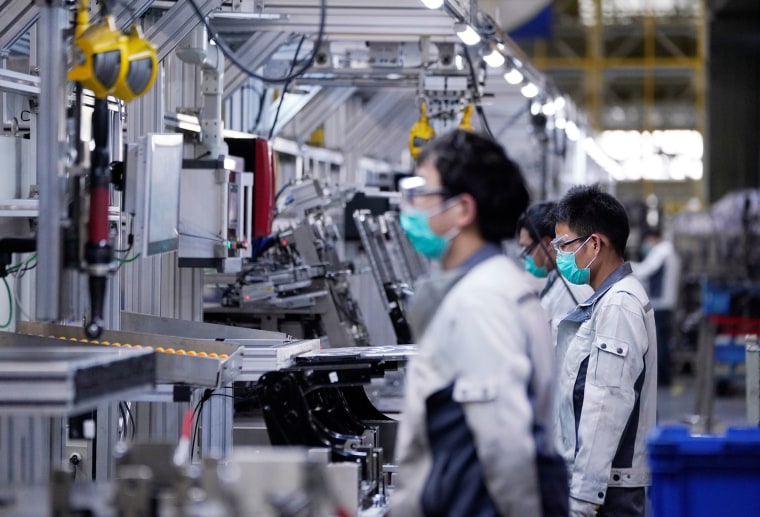Global auto sales could dip by as much as 2.5 percent this year, a significantly sharper decline than the 0.9 percent dip previously forecast, with coronavirus taking the blame, according to a newly released report by Moody’s.
Almost from the moment it became clear a dangerous new virus was spreading in the Chinese city of Wuhan, the auto industry found itself at Ground Zero. An assortment of automakers operating in or near the city — including foreign makers Nissan, Kia, Peugeot and Honda, and Chinese domestics such as Dongfeng — were forced to halt production. Soon, manufacturers in other parts of the country, including China’s automotive center, Shanghai, were feeling the impact.
The broader impact on China, which has ordered quarantines and taken other steps to contain the epidemic can be seen in the 92 percent decline in car sales during the first half of February, according to the China Passenger Car Association. Despite cautiously upbeat industry forecasts going forward, the continued spread of the disease leaves plenty of skepticism — and not just in China. Automakers around the world are beginning to feel the pinch, as well.
Investors and automotive suppliers are all asking the same question: Which companies are most vulnerable?
“Investors, automotive suppliers and global media this week are asking me the same coronavirus question,” said Michael Dunne, chief analyst with ZoZo Go, an automotive consulting firm. “Which companies are most vulnerable?”
The impact is being felt in a variety of different ways. The epidemic quickly led to factory shutdowns, starting in Wuhan and then spreading across China — though many plants, such as the new Tesla factory in Shanghai, have reopened. Ford restarted production on Feb. 10.
But Dunne and other analysts caution that many factories still are running slow and could face new restrictions if the epidemic worsens.
Meanwhile, Nissan has its Chinese headquarters in Wuhan. That complicates a variety of other problems facing the second-largest Japanese automaker, whose shares have tumbled 30 percent this month.
But it’s not alone. Several manufacturers have become dependent upon sales and revenues from what has become the world’s largest new vehicle market, especially General Motors and Volkswagen, two of China’s biggest players.
Complicating matters, while China is not a significant exporter of fully assembled vehicles, it does play a major role in the worldwide auto parts and component network. Hyundai, which is heavily dependent upon Chinese suppliers, was forced to idle some of its home plants this month due to shortages. And now, with the coronavirus spreading rapidly in that country, the impact is expected to multiply.
South Korea isn’t alone. With the diagnosis of a coronavirus case in Brazil, the disease has now appeared on every continent but for Antarctica.
Final assemblers such as Nissan, Hyundai and GM aren’t the only ones feeling the impact. Global auto parts companies such as Visteon and Aptiv have forecast revenue hits in the range of $60-$80 million for the first quarter.
Even as parts plants resume operations, many suppliers are being forced to turn to costly air freight, rather than ships, to get parts to their customers fast. That will further impact earnings, whether suppliers or their automaker customers wind up paying.
Several trade shows in Europe, including the Mobile World Congress in Barcelona, Frankfurt’s Light + Building fair, and even Milan's fashion week have been cancelled or postponed. Organizers of the Geneva Motor Show, which begins on March 3, have said they plan to go ahead with the annual event but are "carefully observing the situation and its possible implications.”
Moody’s said its outlook for the industry is, for now, “negative.” And while it does see improvements in 2021, it expects global demand will only rebound then by about 1.5 percent.
In the longer term, it is now anyone’s guess as to how the epidemic will impact the auto industry. The question is how the disease may spread and what can be done in response.
